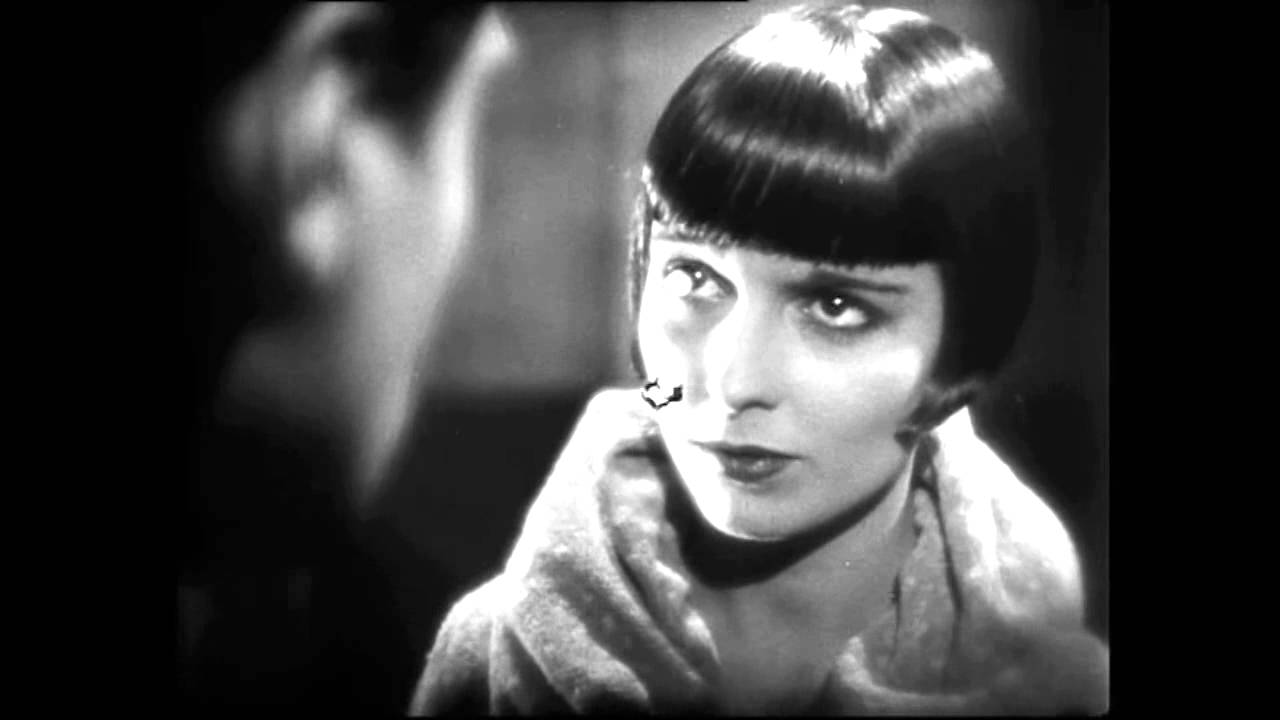It is impossible to talk about G.W. Pabst’s 1929 masterpiece Pandora’s Box without talking about Louise Brooks. Brooks’ innocent, irrepressibly pansexual Lulu isn’t merely the heart of the film but the film itself. The story itself dates back much further, and Pabst is one of the great Weimar directors, but Brooks’ image — both the public’s perception of her at the time and the literal image of her face — animates everything about it, then and since.
This is no ordinary association between star and role. The Louise Brooks Society (“the leading source for all things Lulu”) titles its almost obsessively detailed web archive “Pandora’s Box”. J. Hoberman notes, “[S]eldom has an actress been more closely identified with a particular part, and even less often has a single role been used to reflect on a performer’s life, not least by the performer herself.”
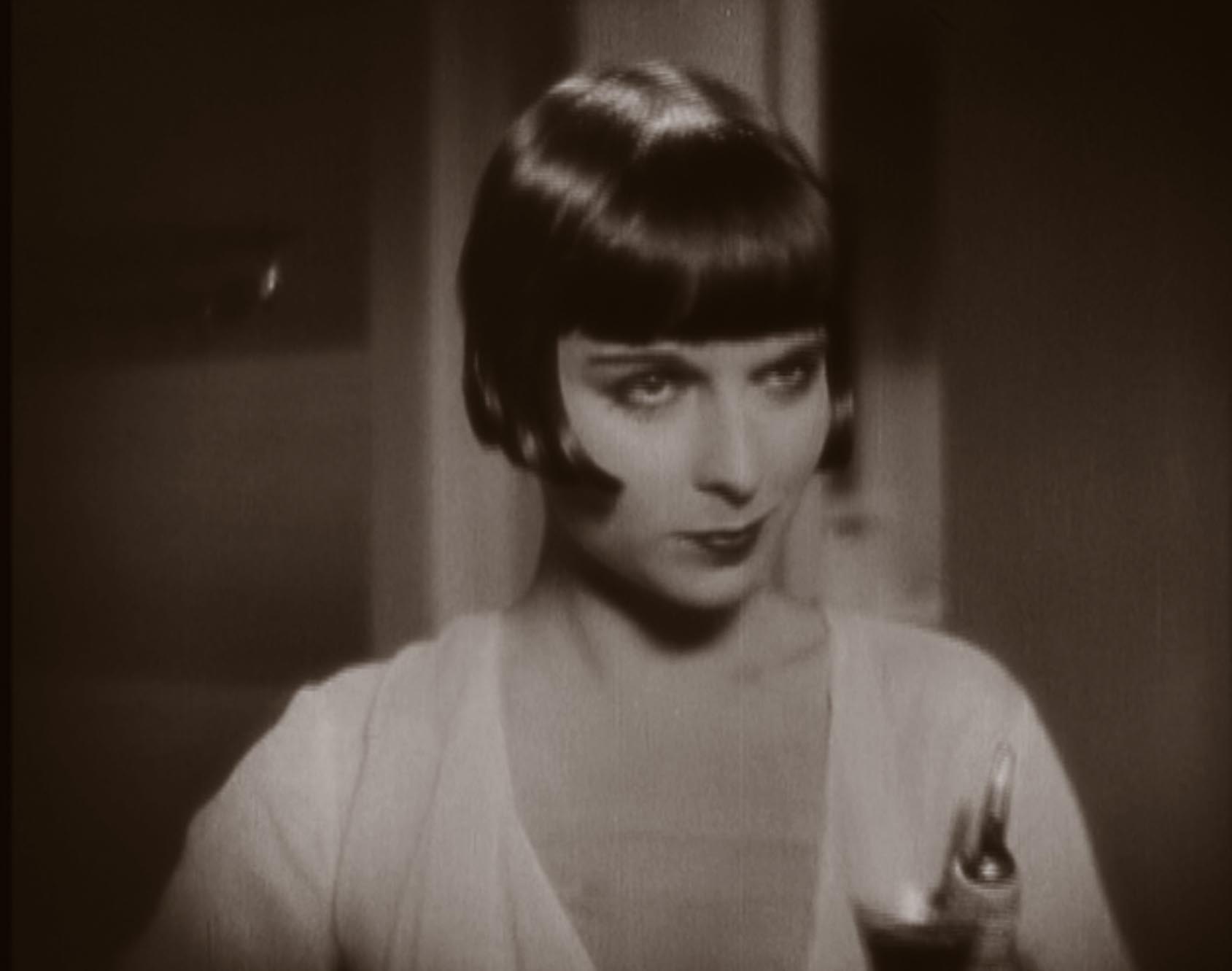
After an early career in the Follies, Brooks amassed 24 acting credits to her name — from collaborations with her friend W.C. Fields through Howard Hawks’ A Girl In Every Port and the Pabst films, before being summarily run out of the film business on a rail — but she will forever be remembered as Lulu. (Even to herself, apparently, famously titling her notorious memoirs Lulu In Hollywood).
Taken on its on terms, Pandora’s Box is something of a bloated affair, combining Pabst’s naturalism with a convoluted melodrama about sex, scandal, and the dangerous force of female desire. Based on playwright Frank Wedekind’s story cycle, it can be read as an attack on bourgeois repression, but by the time Lulu is on a steamship, waiting patiently for her lover to cheat at cards to pay off a blackmailer who wants to sell her to an Egyptian brothel, it’s hard not to feel that the film could’ve used a bit of paring down. Wedekind’s meandering tale was beloved at the time by German audiences — members of which reacted hostilely to casting the mostly unknown American ingenue in the first place — and there’s a distinct sense that Pabst and scenarist Ladislaus Vajda didn’t dare leave any plot points out.
Still, Pandora’s Box is entirely engaging for most of its running time. Brooks’ Lulu is a dancer and mistress to a bourgeois newspaper publisher, who finds himself compelled to marry her after they’re discovered making out backstage at her performance. His son is in love with her, too, though — as are, it seems, Countess Anna Geschwitz (perhaps the first overtly lesbian roles in film) and even the creepy old drunk Schigolch, her “first patron” and implicitly her pimp. Basically, everyone is in love with Lulu.
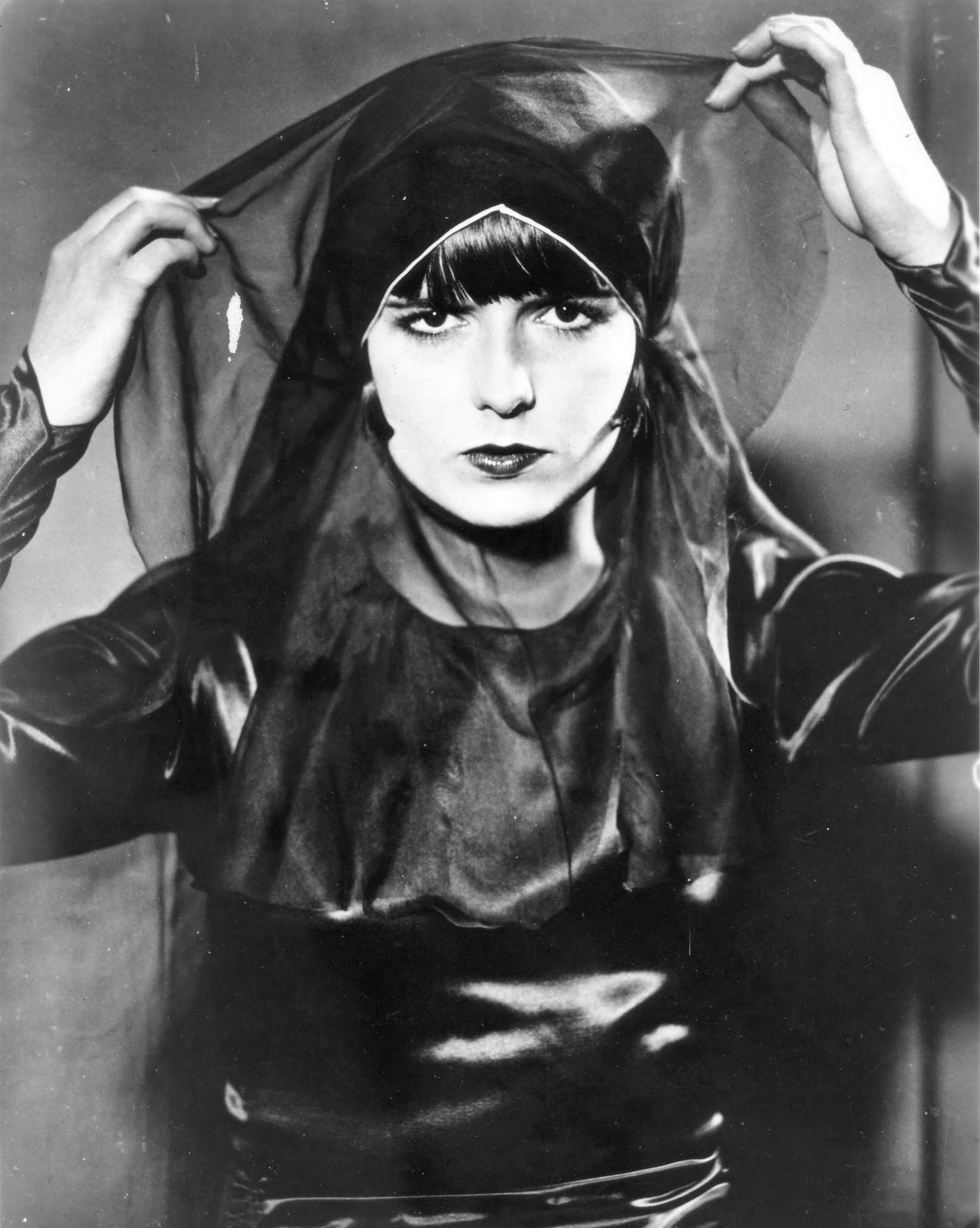
A shocking scene finds her new husband demanding Lulu shoot herself for her transgressions; he winds up dead instead, and Lulu tried for his murder. Thus begins the second part of Pandora’s Box, filled with intrigue and the looming threat of the Egyptian brothel.
With all due respect to Wedekind, Pabst, and fans of the original stories, none of this much matters. Pandora’s Box is as enraptured with Brooks as its characters, placing her in luminous close-up and sexy mid-shot. Pabst misses no opportunity to emphasize her severe, iconic bob and low-cut dresses, and definitely puts her background as a dancer to pointed use. Pandora’s Box asks Brooks to portray an effortlessly entrancing naïf, a personification of guileless desire. She’s more than up to the task. (It’s instructive to think how disastrous it would’ve been had Pabst regular Marlene Dietrich been cast, as originally planned; this Lulu is world’s apart from the sort of smoky sensuality and knowing manipulation synonymous with Dietrich.)
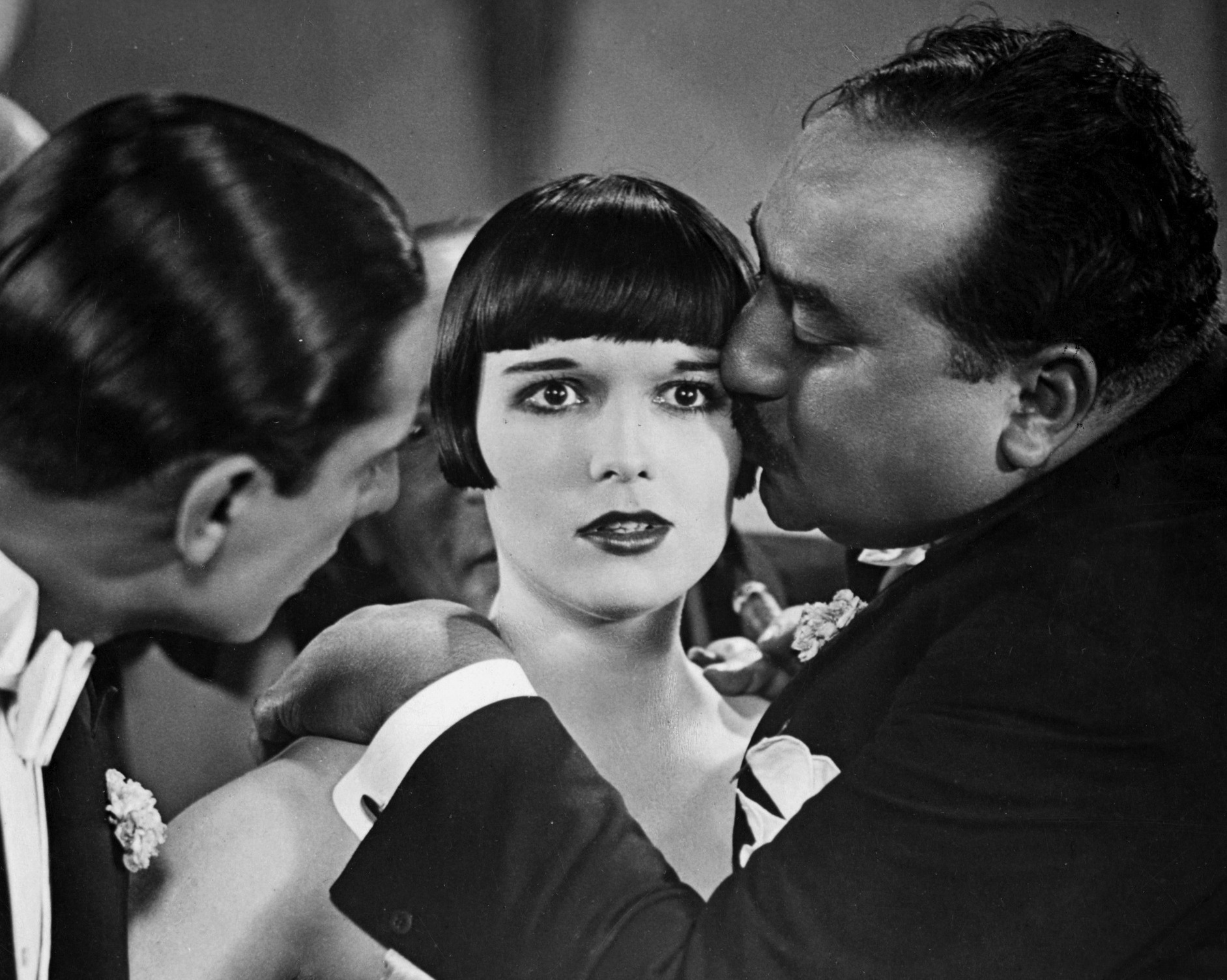
That innocence and almost instinctive sexuality struck many fans and critics at the time as a failure on Brooks’ part to understand the role — or perhaps, simply a lack of talent. Variety wrote, “Louise Brooks, especially imported for the role, did not pan out, due to no fault of hers. She is quite unsuited to the vamp type, which was called for by the play from which the picture was made.” Another called her “an inanimate dummy.” Siegfield Krakauer, later famous for authoring From Caligari To Hitler, thought she wasn’t “enough of a whore.” (All quotes from The Louise Brooks Society.)
Later viewers would beg to differ, recognizing Pandora’s Box as her defining role and arguably Pabst’s greatest film. In 1953, no less an esteemed cinephile than Henri Langlois would declare: “There is no Garbo, there is no Dietrich, there is only Louise Brooks!” (As Ebert wryly notes, “Brooks must have smiled to hear her name linked with two of her reputed lovers.”)
The year prior to the release of Pandora’s Box, Brooks was starring opposite Richard Arlen and Wallace Beery in Beggars of Life, an excellent Hollywood film that nonetheless felt compelled to explicitly cloak her femininity, sending her out to ride the rails dressed as a boy to protect her from sexual violence. In Weimar Germany, amid the Red Light Districts and after-hours clubs she loved so much that Pabst forbid her from leaving the hotel lest the gossip columns pick up on it, Brooks exuded an entirely different kind of sensibility on screen.
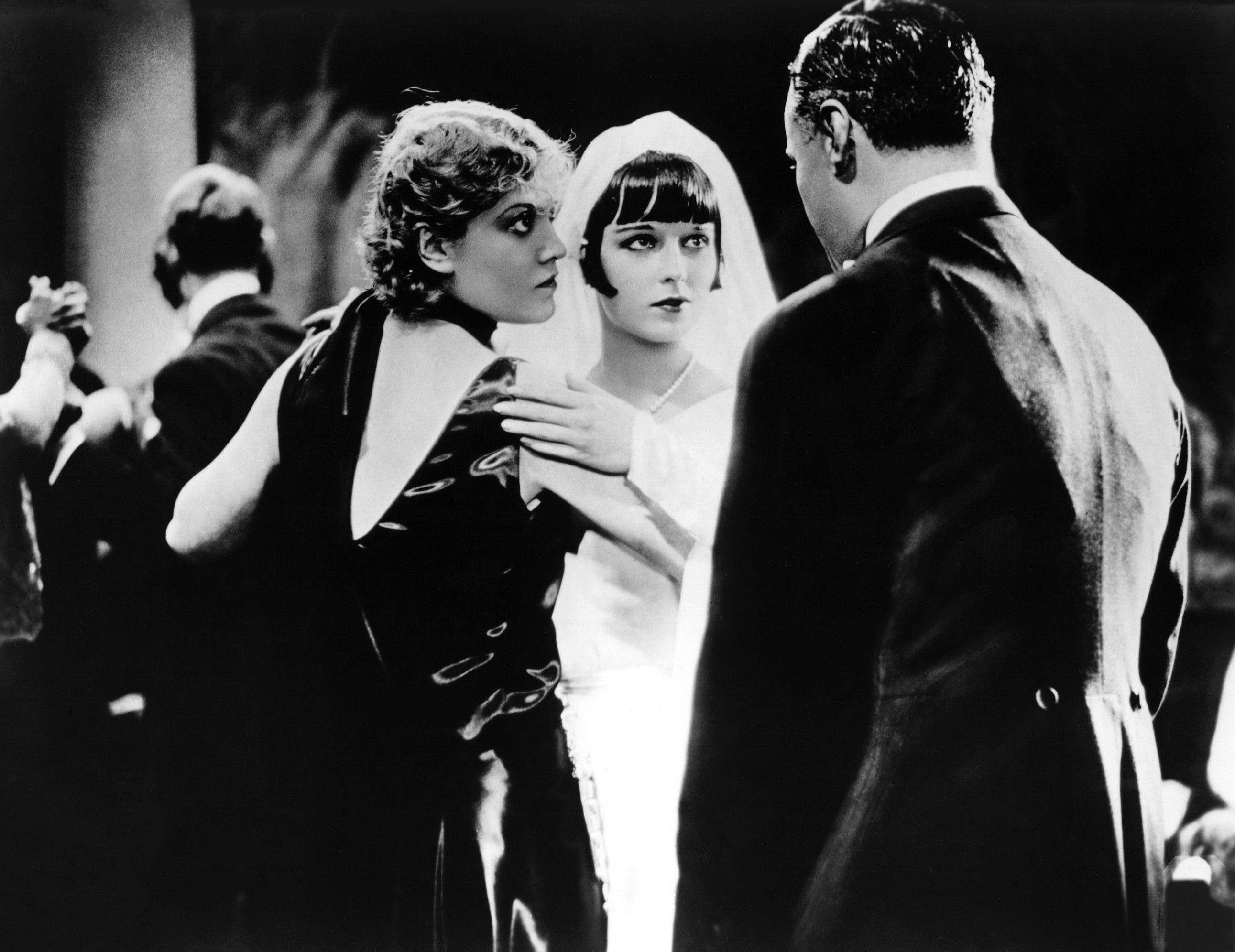
On both sides of the Atlantic, Brooks burned bridges like a hobby, quitting Paramount over a salary dispute, unapologetically carousing and taking lovers (like Charlie Chaplin), generally embodying the exact kind of dangerously carefree love of life that we celebrate in male stars of screen and stage. As punishment, she would be cast out, blacklisted, and forgotten for half a century. The inevitable rediscovery of Pandora’s Box, by Langlois and others, cemented her legacy, though, and stands as testament to a singularly unique figure in the history of cinema.
The patriarchal scolds and hypocrites of the industry might’ve killed her career, but they also ensured Louise Brooks an almost unparalleled cult following that she more than earned, simply by being herself.
This synopsis could apply equally to a great or a laughable film. Brooks makes it a great one. She seems to stand outside “Pandora’s Box.” She looks modern: She doesn’t have the dated makeup of many silent stars, but could be a Demi Mooreor Winona Ryder, electronically inserted into old scenes by computer. As she careens from one man to another, the only constant factor is her will: She wants to party, she wants to make love, she wants to drink, she wants to tell men what she wants, and she wants to get it. There is no other motive than her desire: Not money, not sex, just selfishness. It could get ugly, but she makes it look like fun. You can’t get something for nothing, but if you can put off paying the bill long enough, it may begin to feel like you can.

